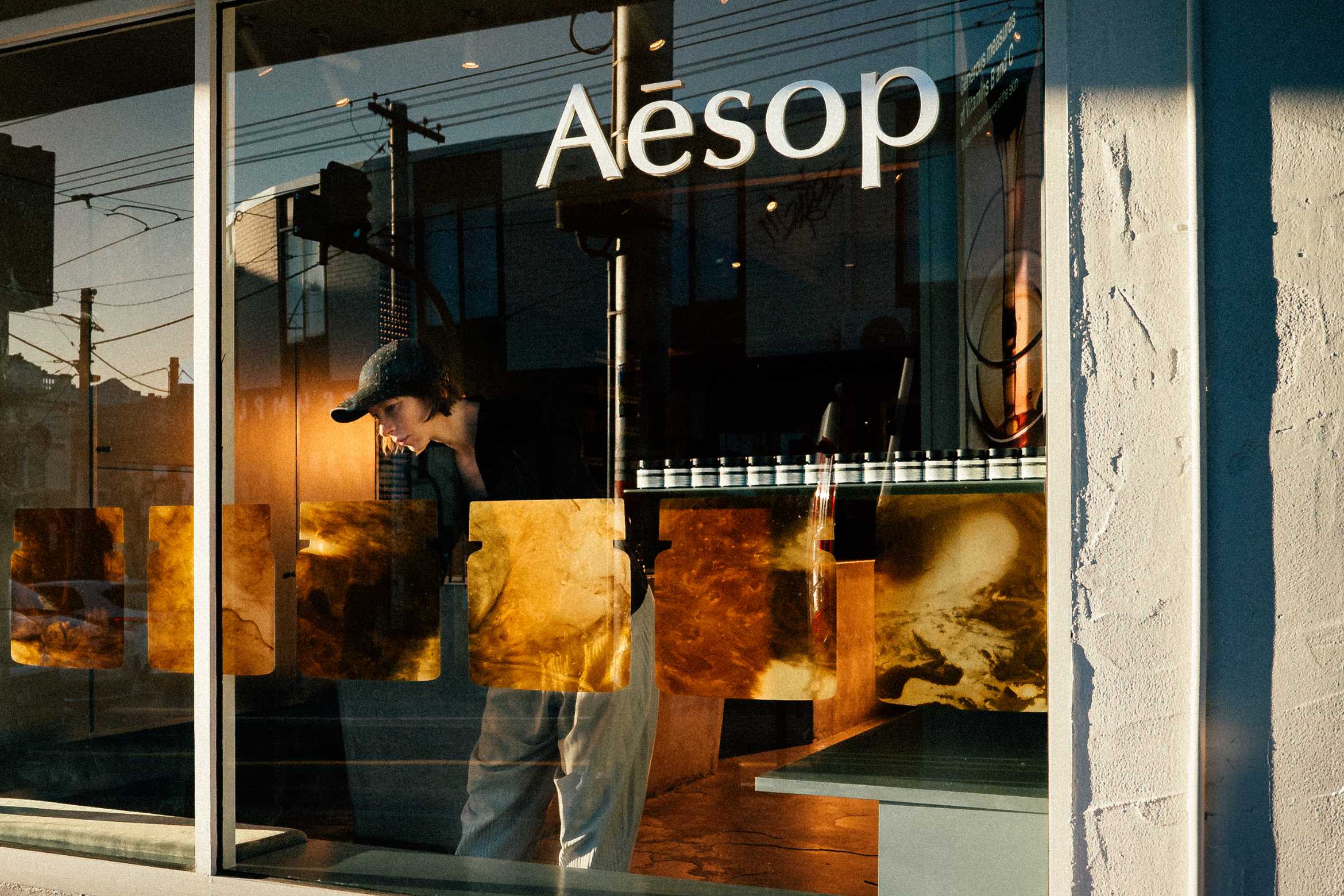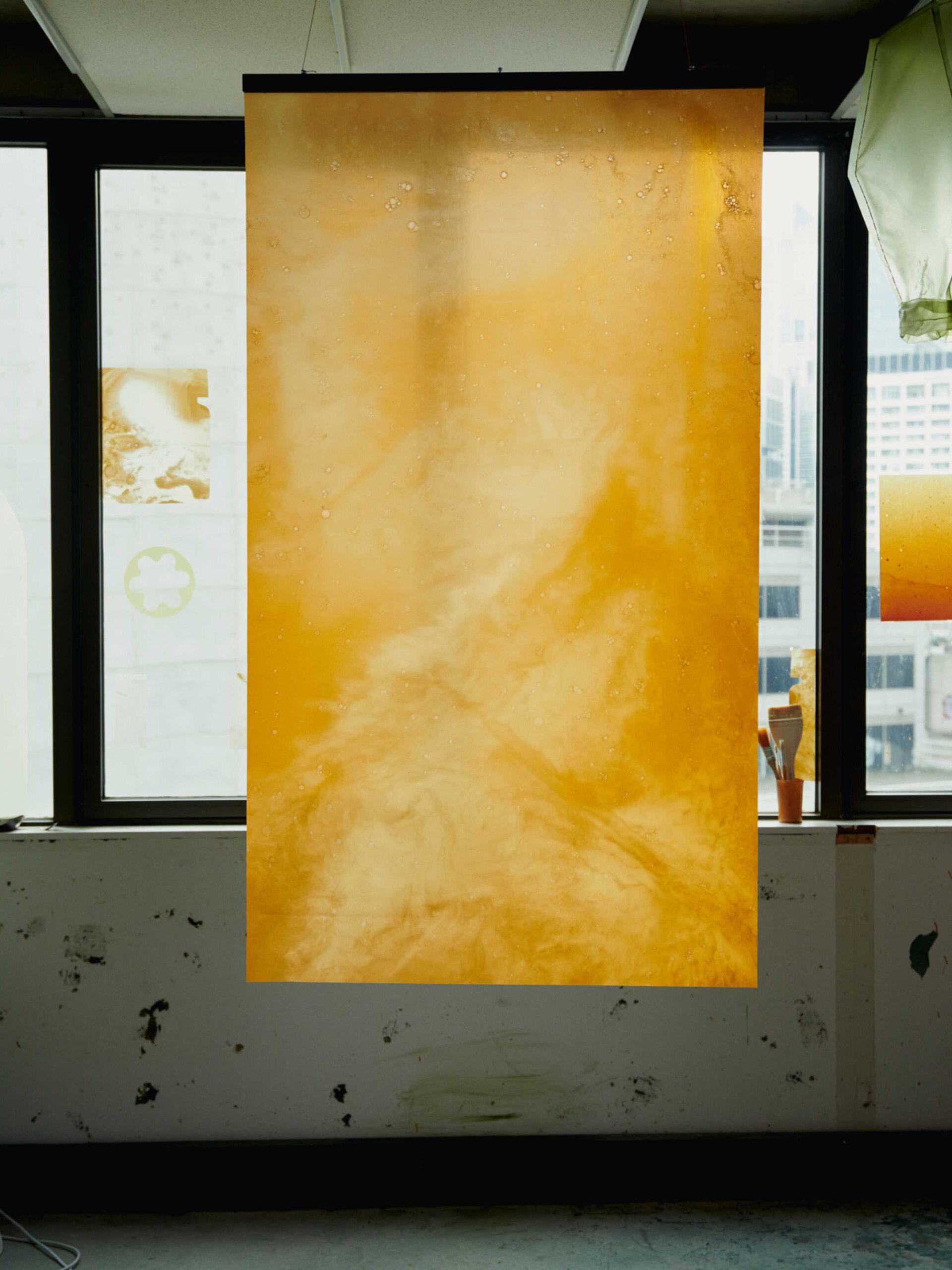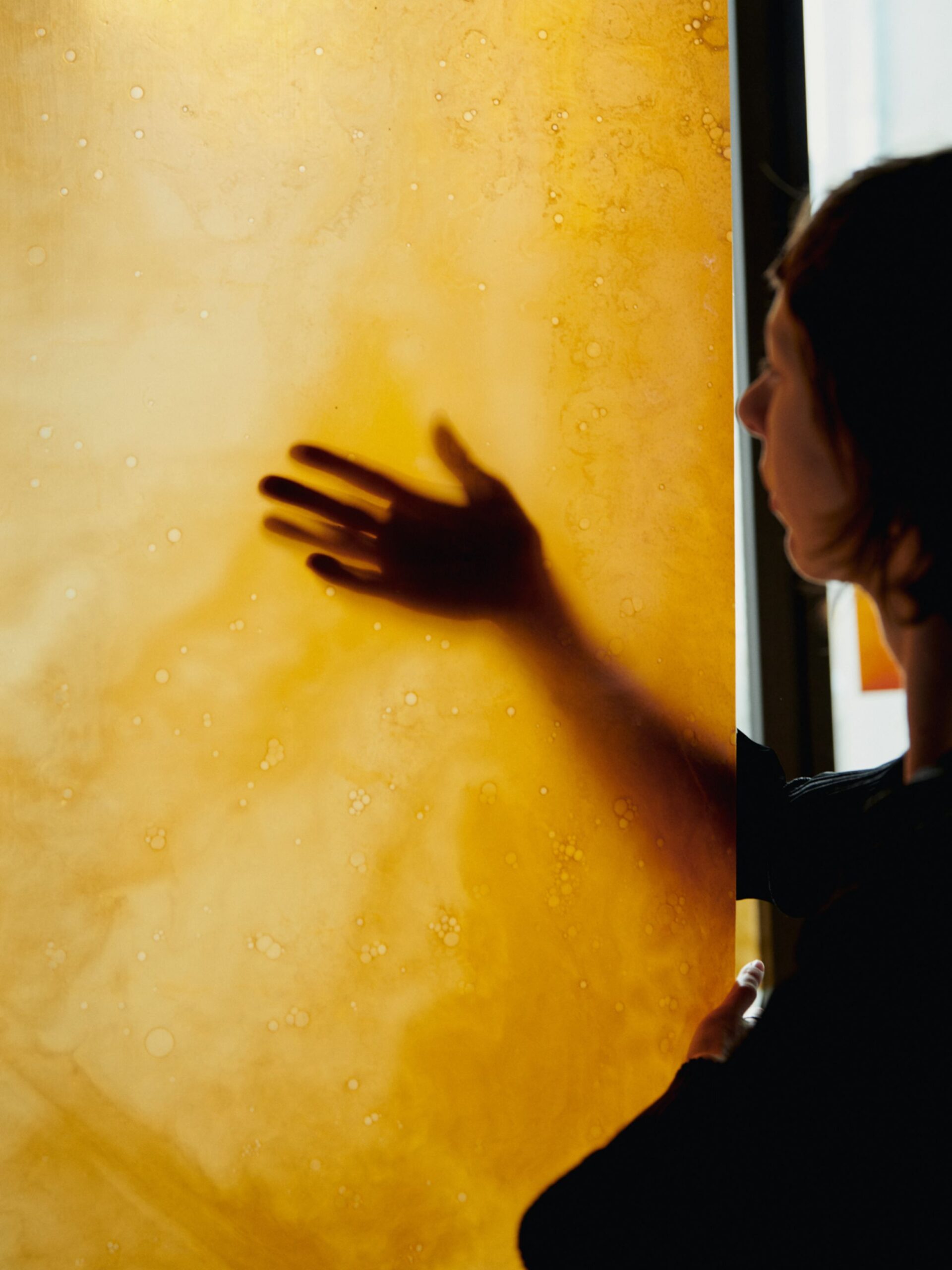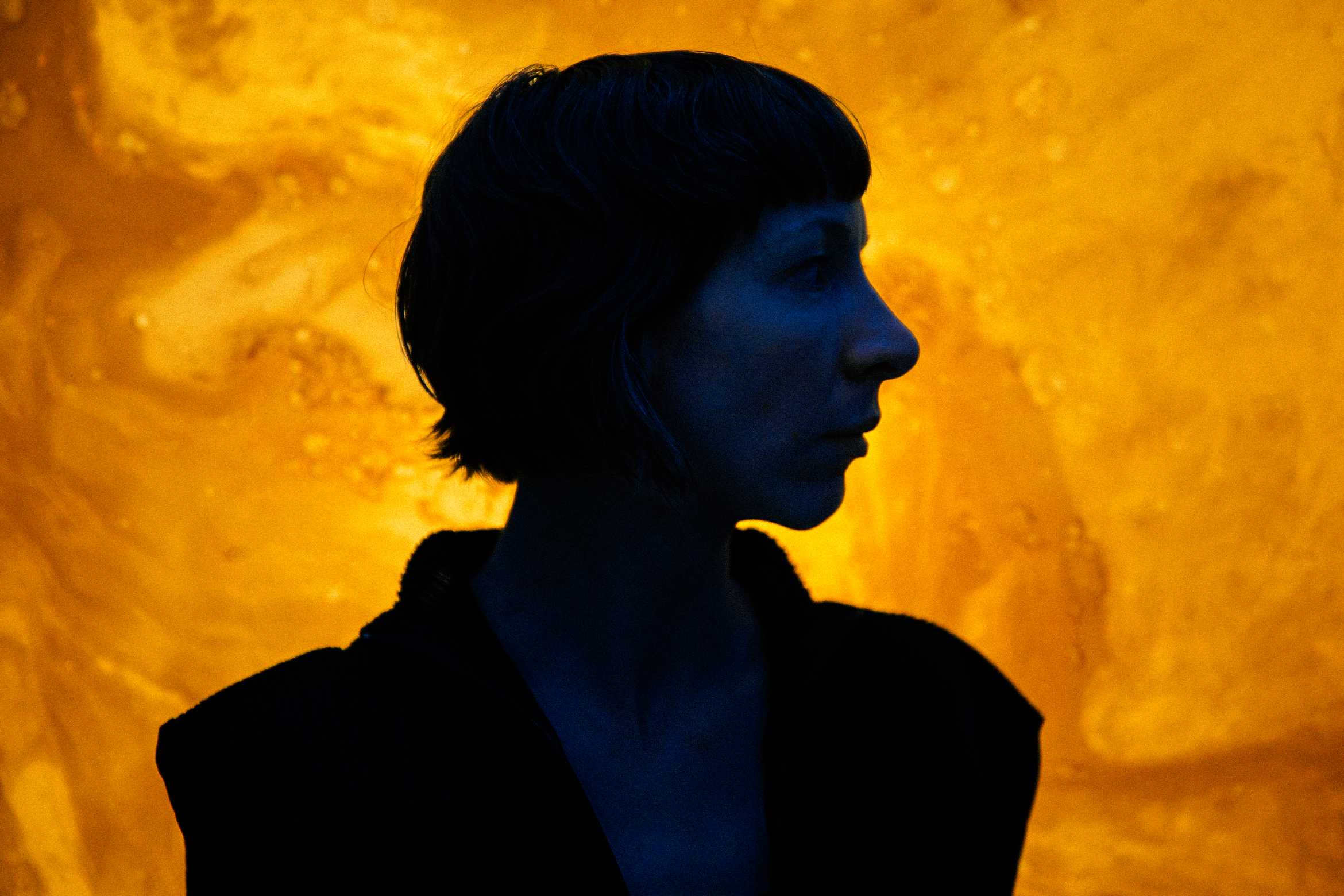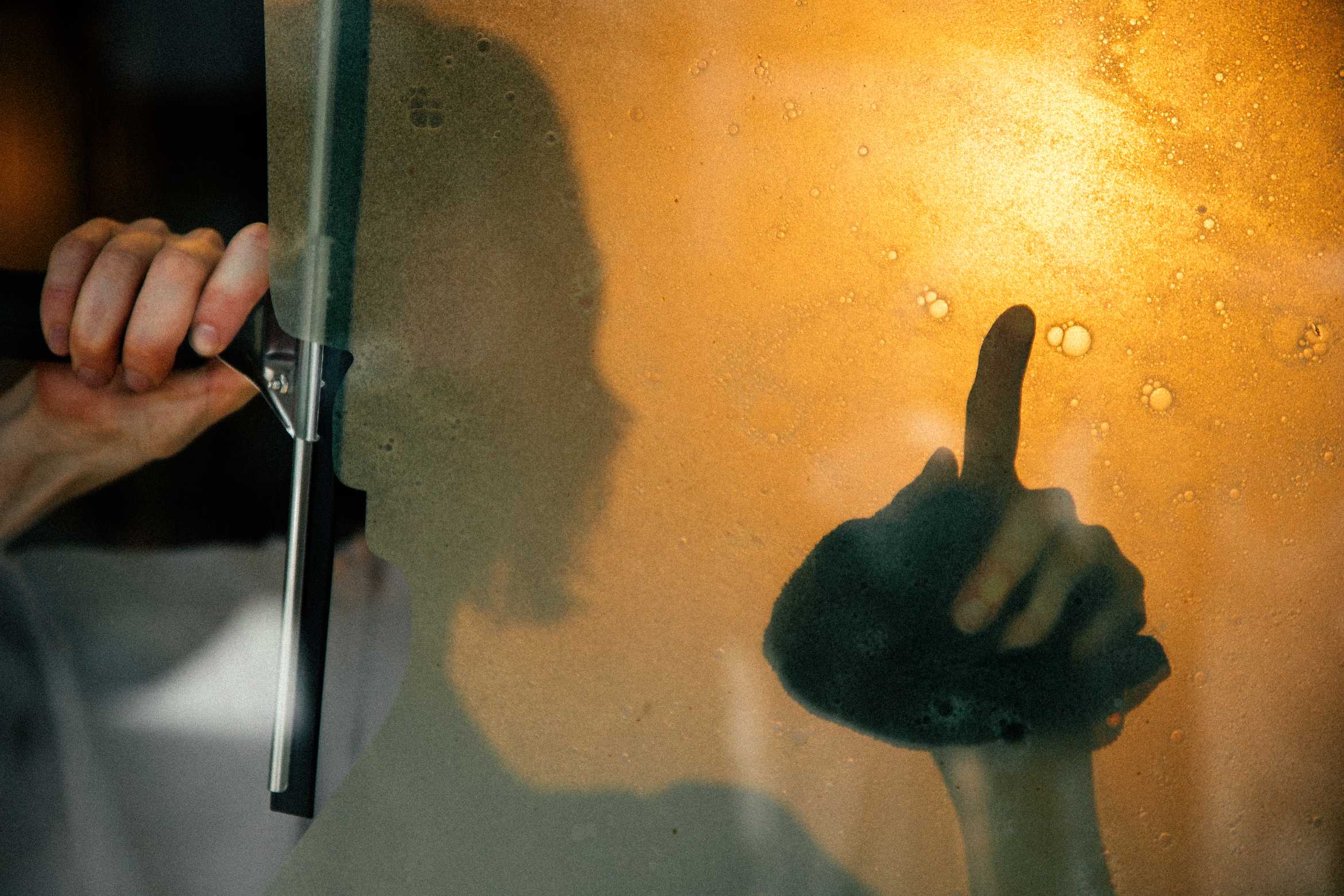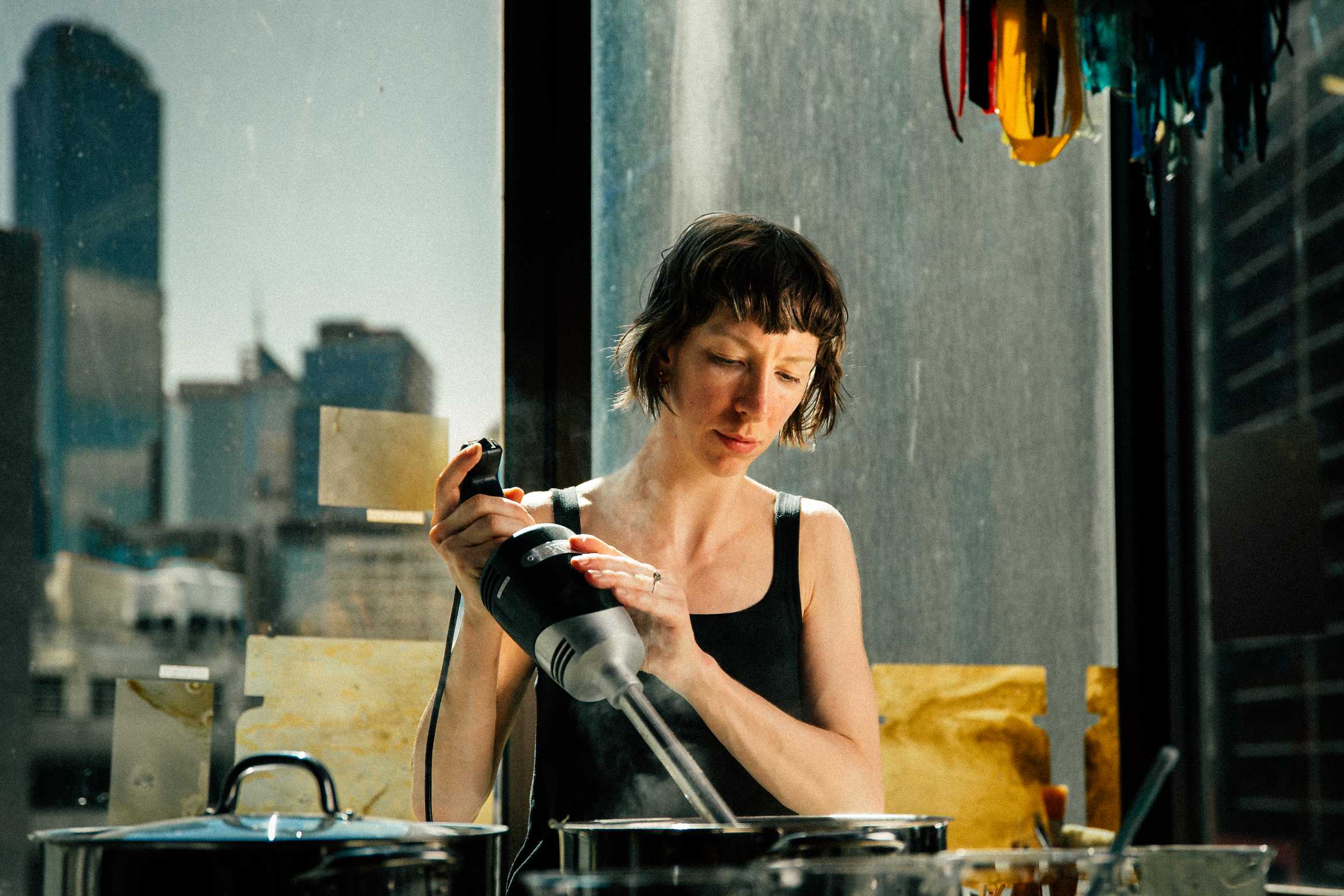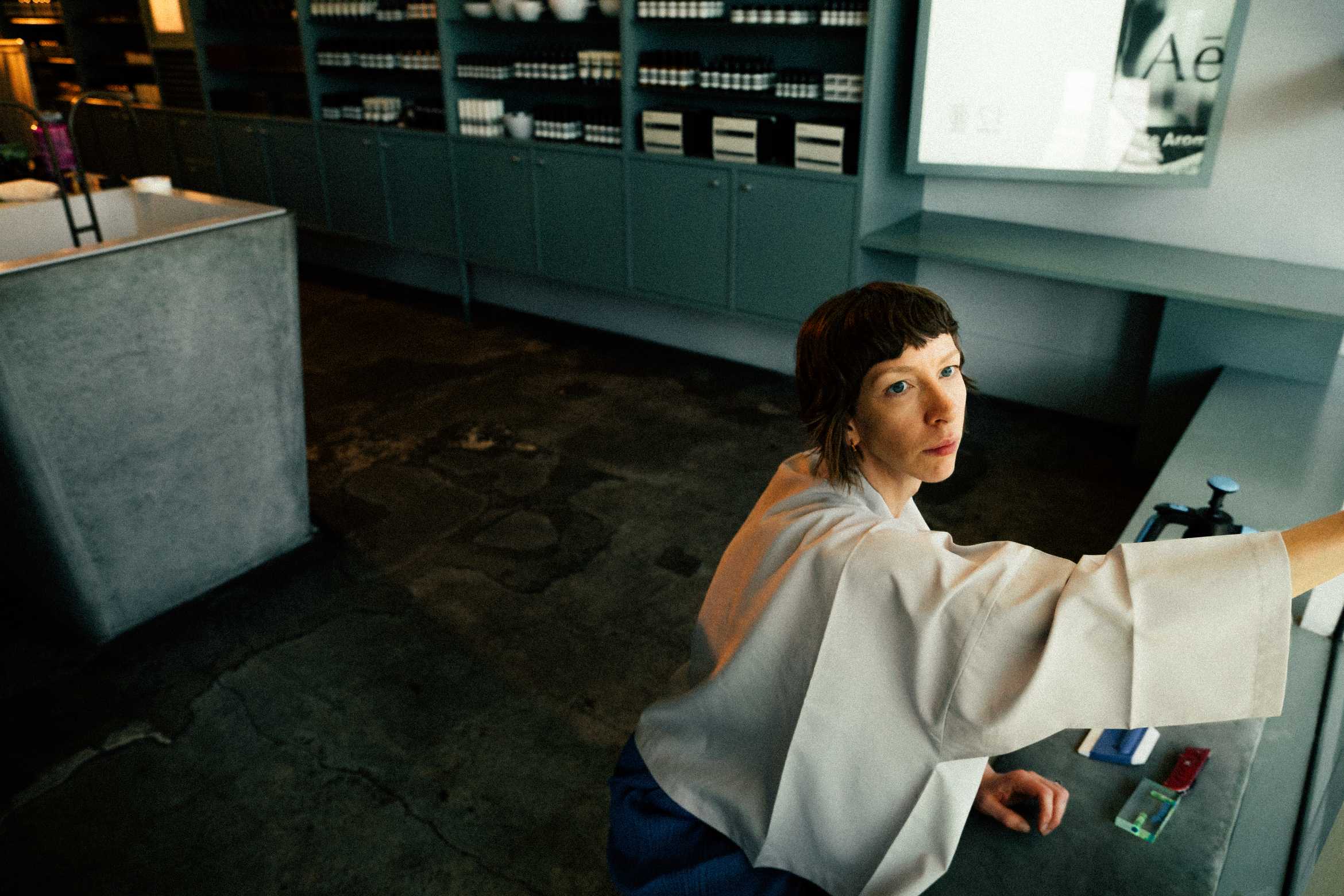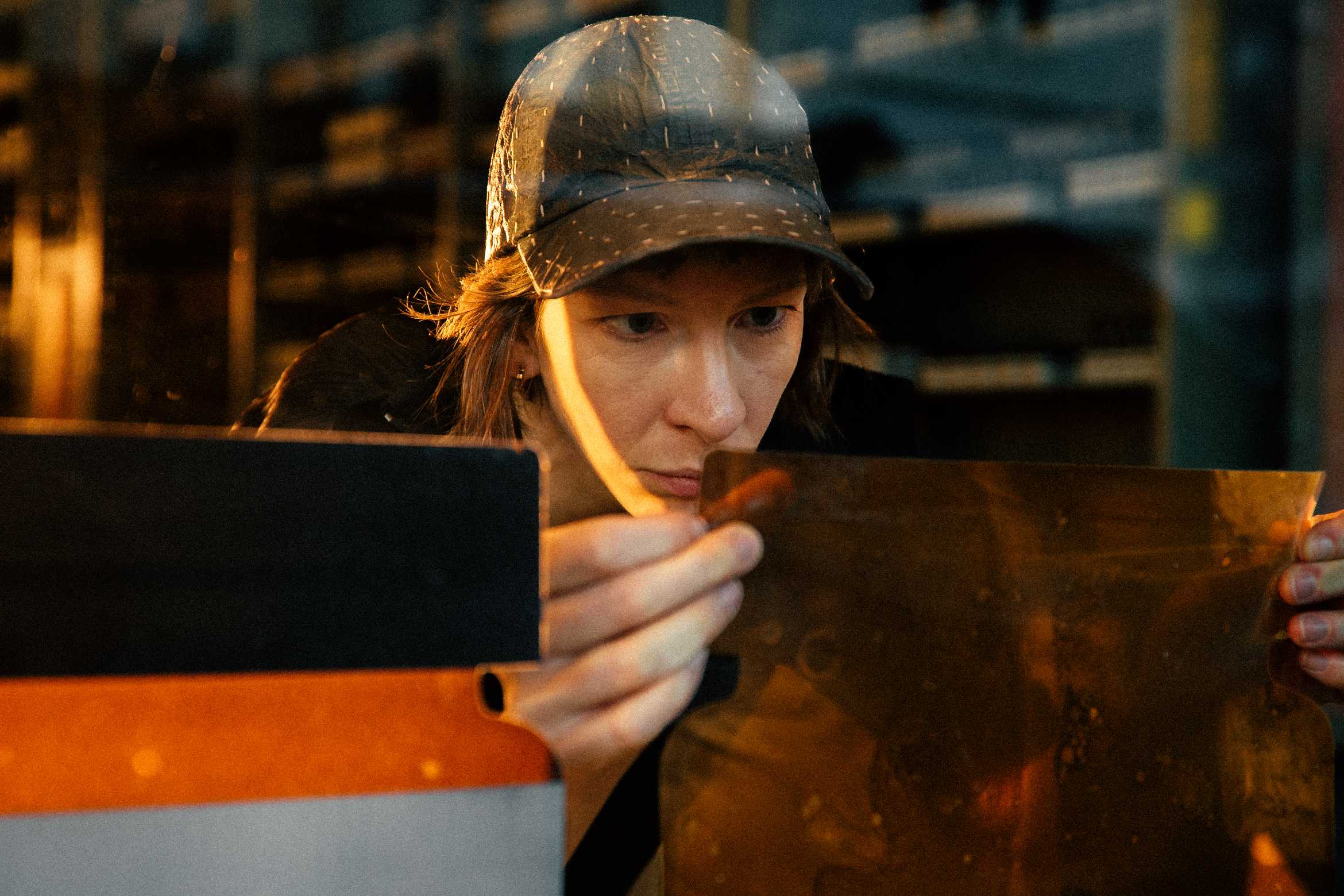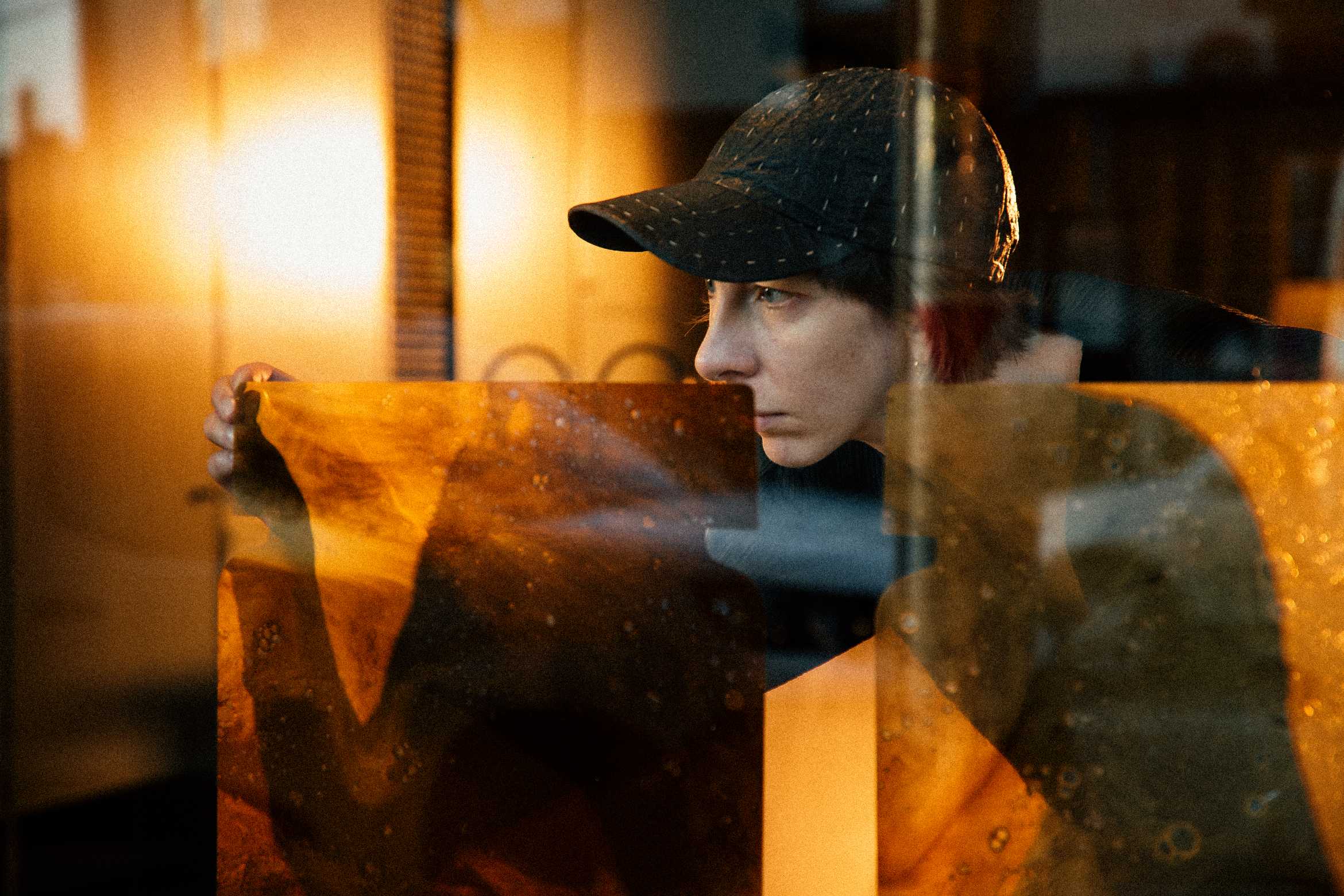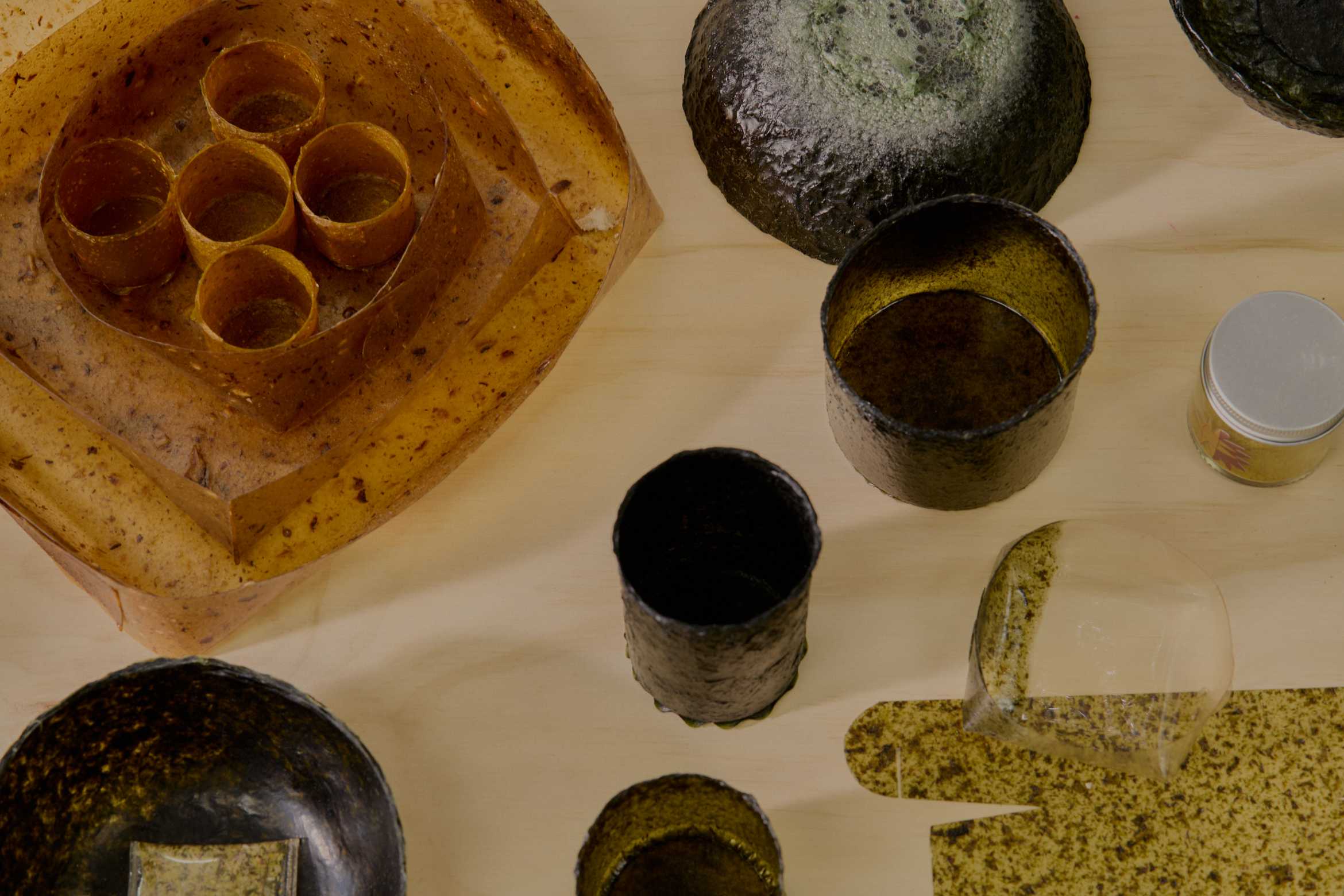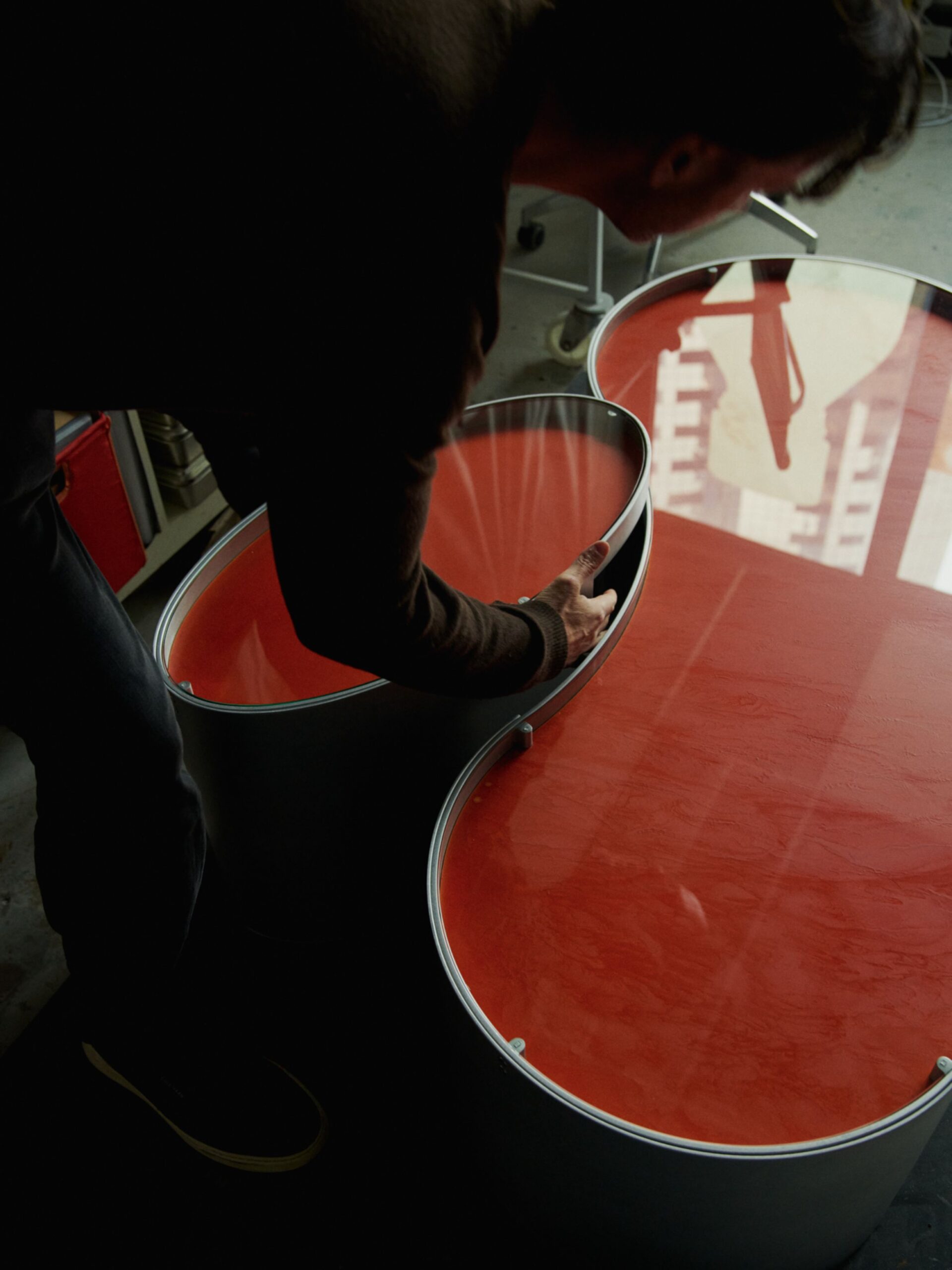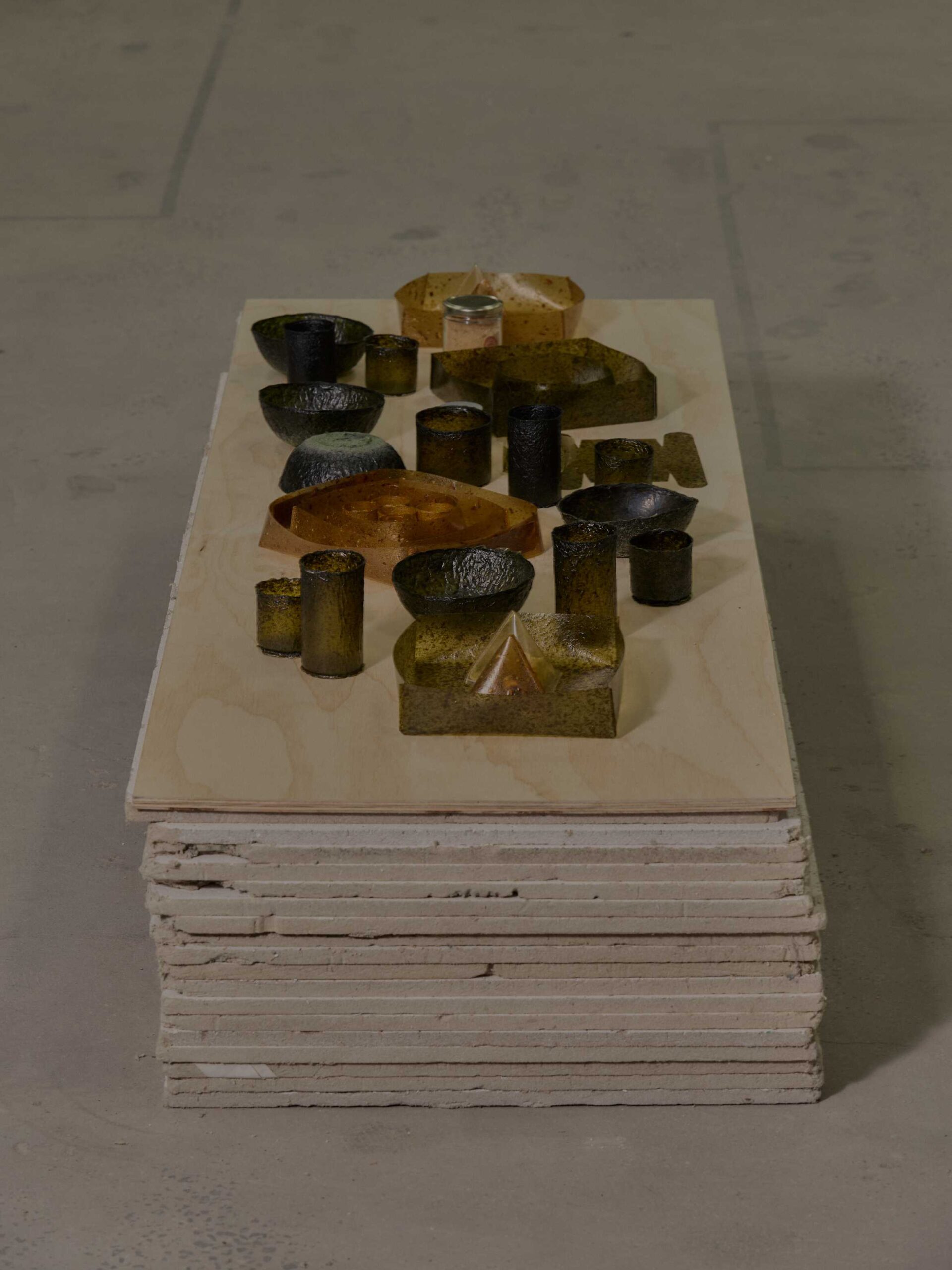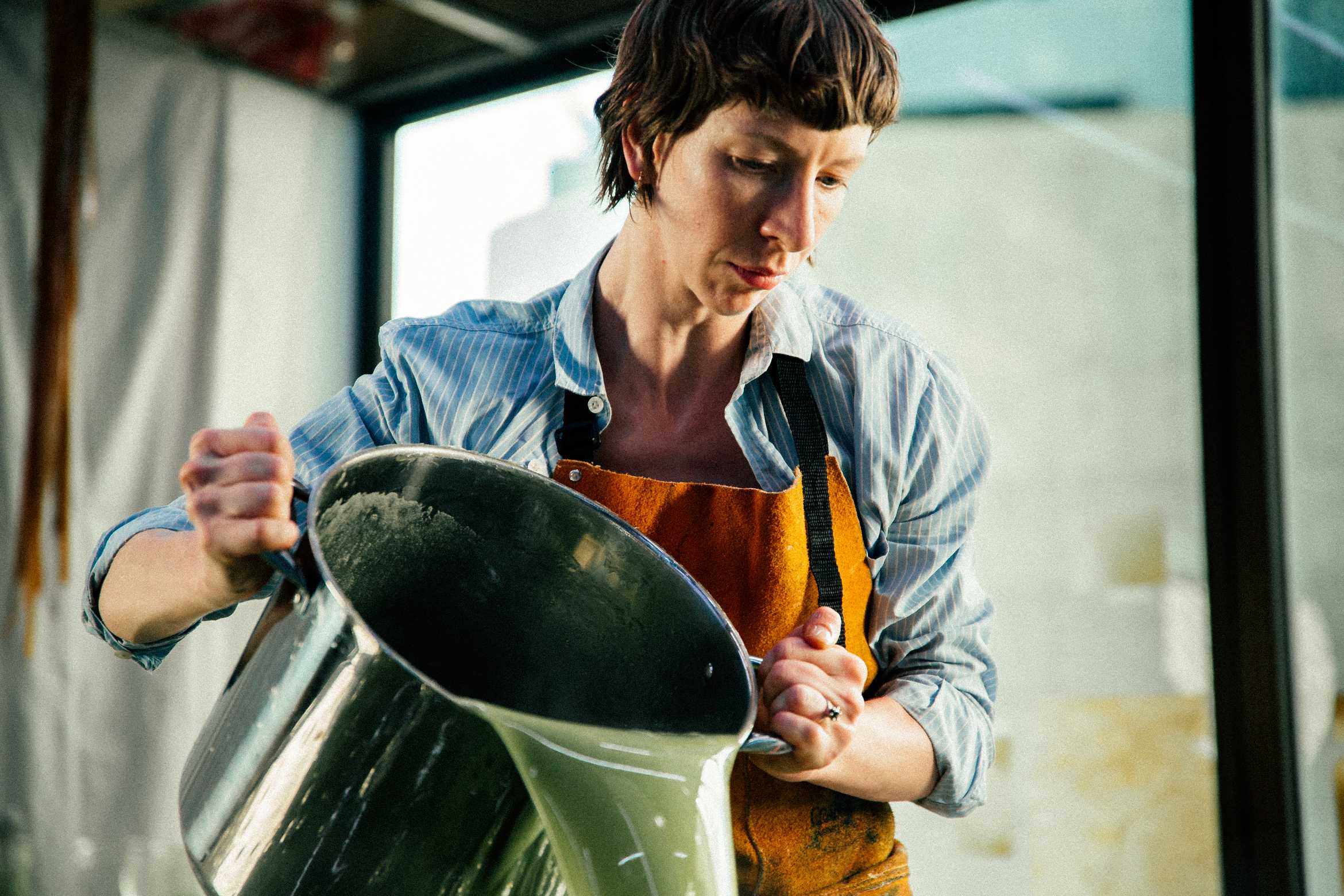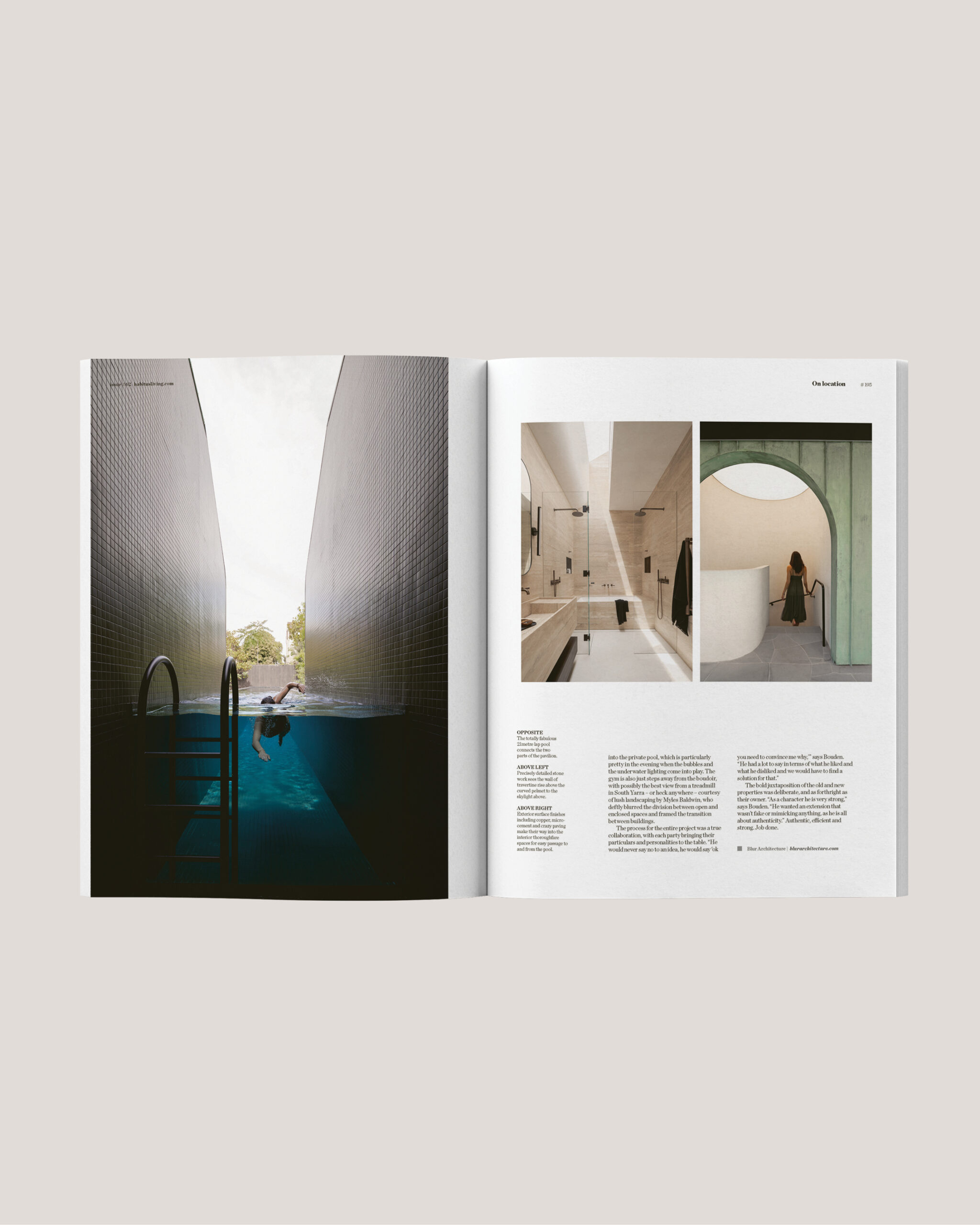Let’s start with some orientation, because experimental designer Jessie French’s Melbourne Design Week (MDW) schedule is prolific. Her design studio, Other Matter, is presenting a conversation alongside Aesop, while another standout highlight is Circular with Daniel Boddam. Material Matters 02, meanwhile, is an exhibition presented by BETA by STH BNK Atelier. As a more general presence, French’s innovative decals are installed at various exhibition sites including Craft and Aesop stores throughout Australia, New Zealand and New York, with a special installation at Melbourne’s Collins Street store.
Jessie French’s background is in the arts, having also studied some history and philosophy of science. “Really, I wanted to focus on new materials,” she says, explaining how her career has progressed into a space of experimental design practice. Her work now focuses on non-petrochemical plastics and pushing new boundaries with, for example, algae-based bioplastics.
“I started with this speculative, artistic project looking at what the world would look like if there were fewer petrochemicals around. I started with algae-based plastics because, at the heart of petrochemicals, is algae as well – the fossil in fossil fuels is a microalgae. There were limits within my artistic work with what I wanted to do in terms of materials, but I felt like there was a need to take the skills and knowledge I’d learned working with these materials – so I started Other Matter,” French explains.
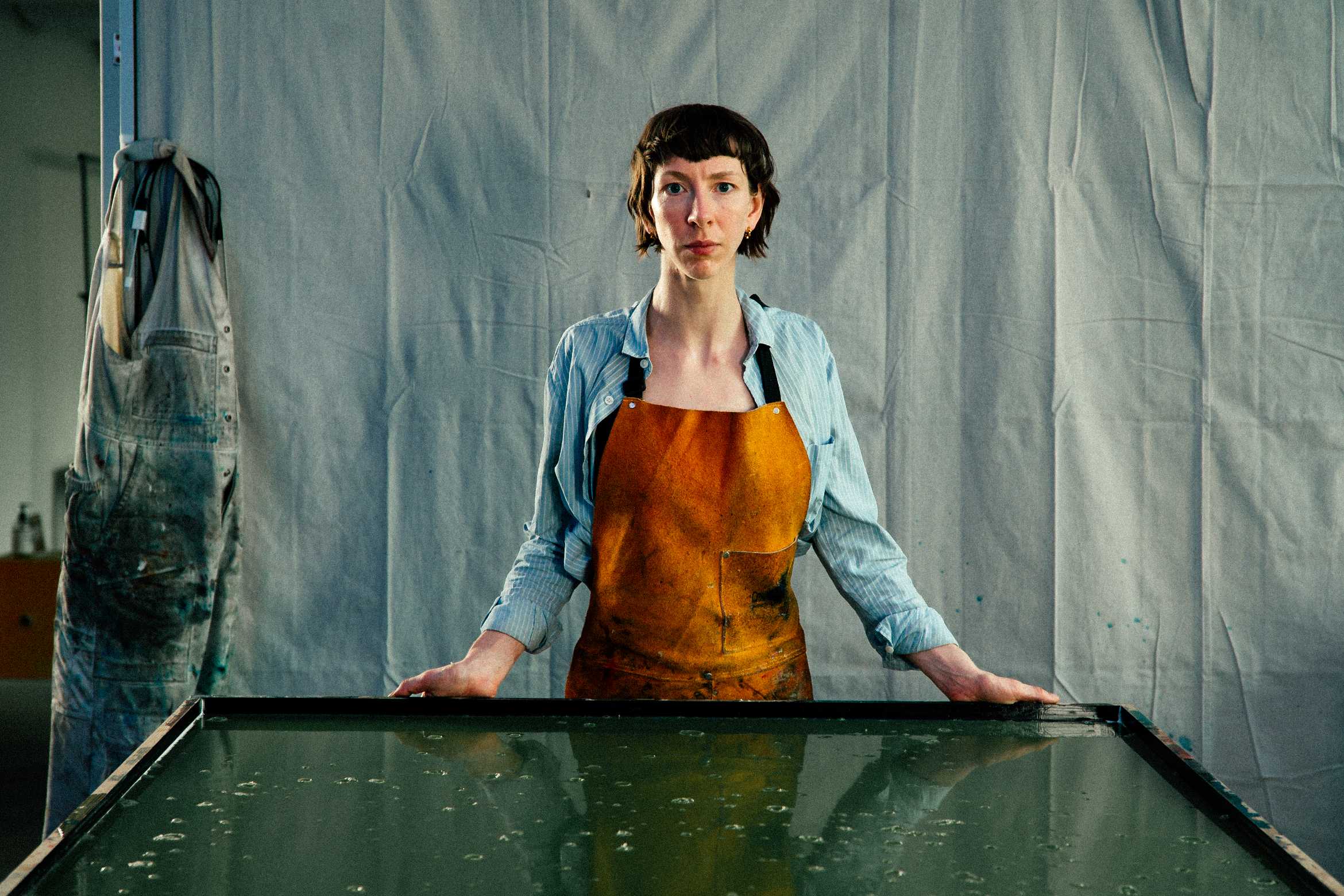
As a design studio, Other Matter is about pursuing applied solutions using experimental materials; the decals at MDW are a prime example. “Algae-based plastics are really at the core of my practice,” she says. “It’s a whole material that can be applied in a bunch of different ways. It’s not our only [form of] practice but, right now, I’m really excited by what’s happening with this and I think there’s room to grow.”
Notably, one of the main advantages of working with algae is that it can be recycled as part of a circular process. Using it for versatile purposes including signage, French is keen to focus on the applied nature of her Other Matter’s practice. This isn’t a form of disconnected art, nor is it wholly commercial, large-scale architecture yet.
Instead, French’s work is very consciously aimed at intervening amidst the climate crisis. “My work is definitely a response to the urgency [of our multiple environmental crises],” she says. “Today, we don’t really have time for art that isn’t engaging with these crises. I don’t think we really have time to make art that is just talking about them anymore.”
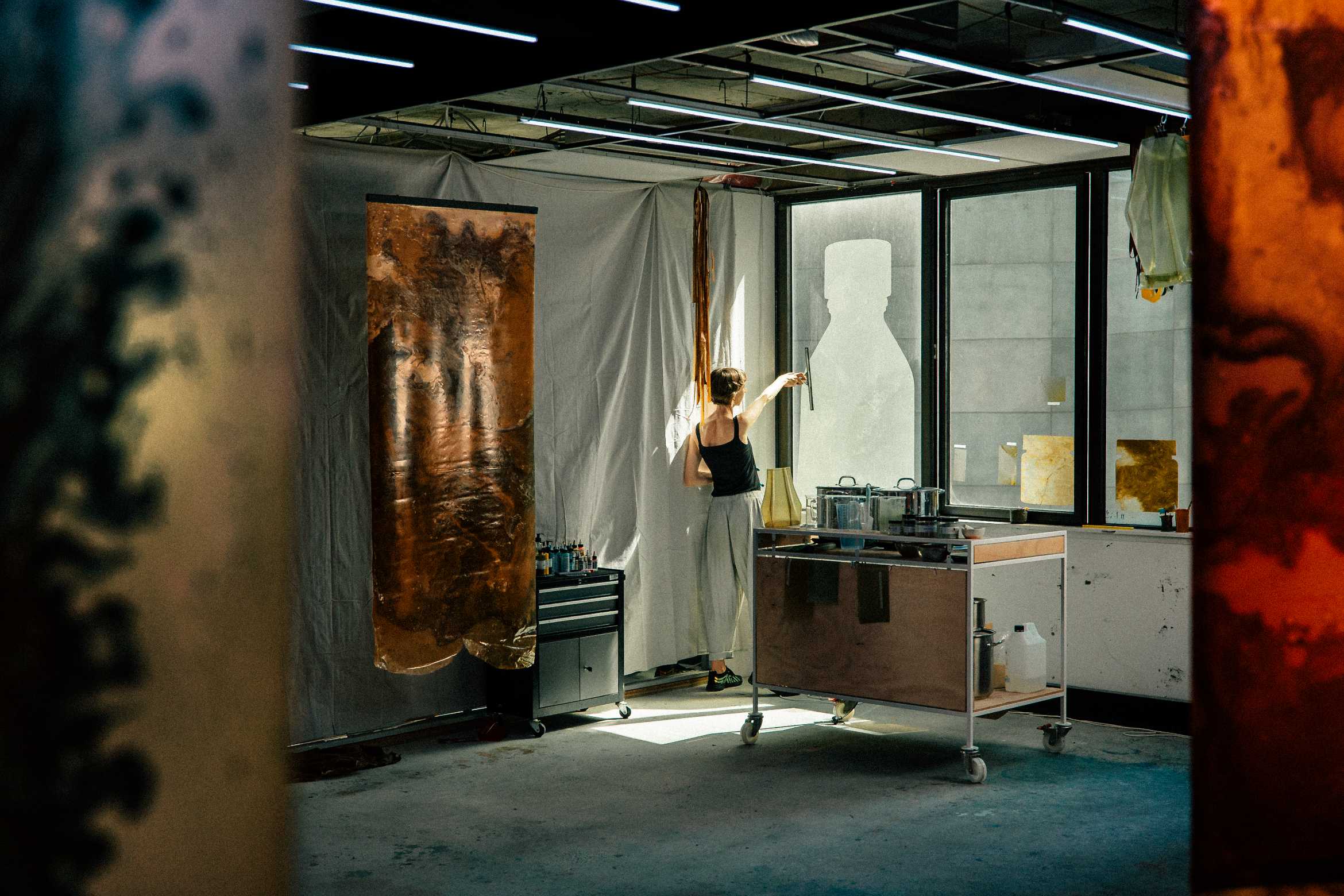
Confronting the global scale of these crises is, of course, daunting, but French explains that her approach is about tackling it “bit by bit” through her work. The decals at MDW, which avoid non-recyclable PVC material, are an example of tangible steps.
“I think definitely there are solutions and things we can do,” she says, pondering what visitors might take away from an engagement with her work at MDW. “We have to look past systems that are in place, and if you really focus on something, you can make change. It’s not our fault as consumers – it’s the system, and so we need to start critiquing the system and working out why we ended up here. I think the other thing I’m hoping for is a little bit of hope.”
Other Matter
other-matter.com
